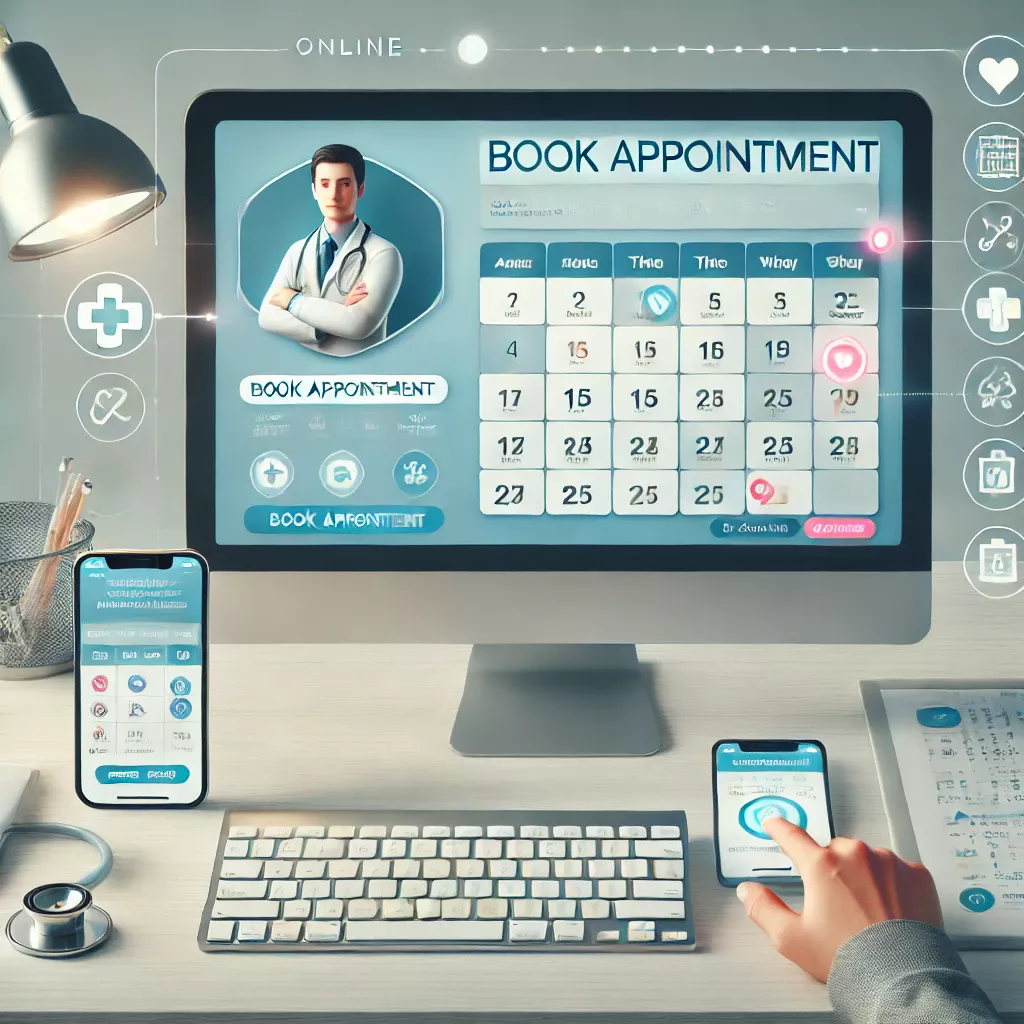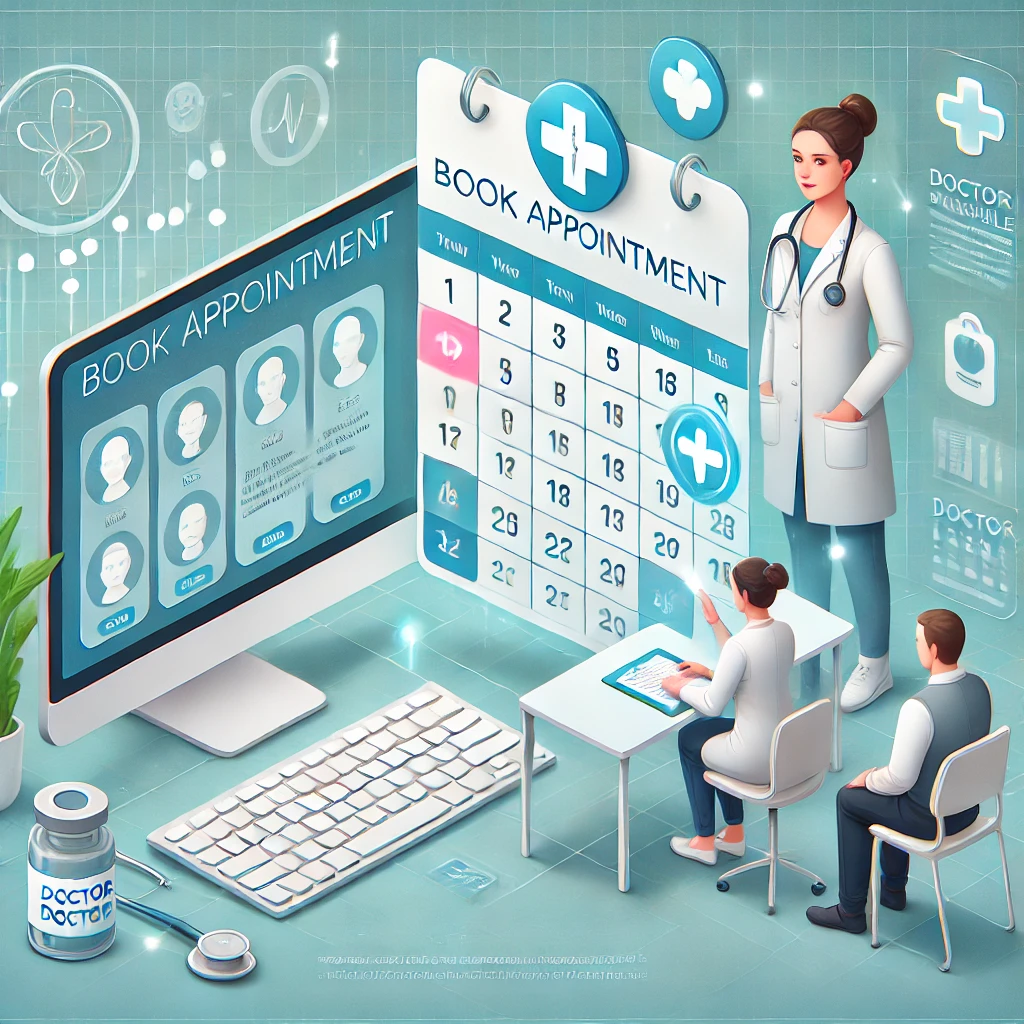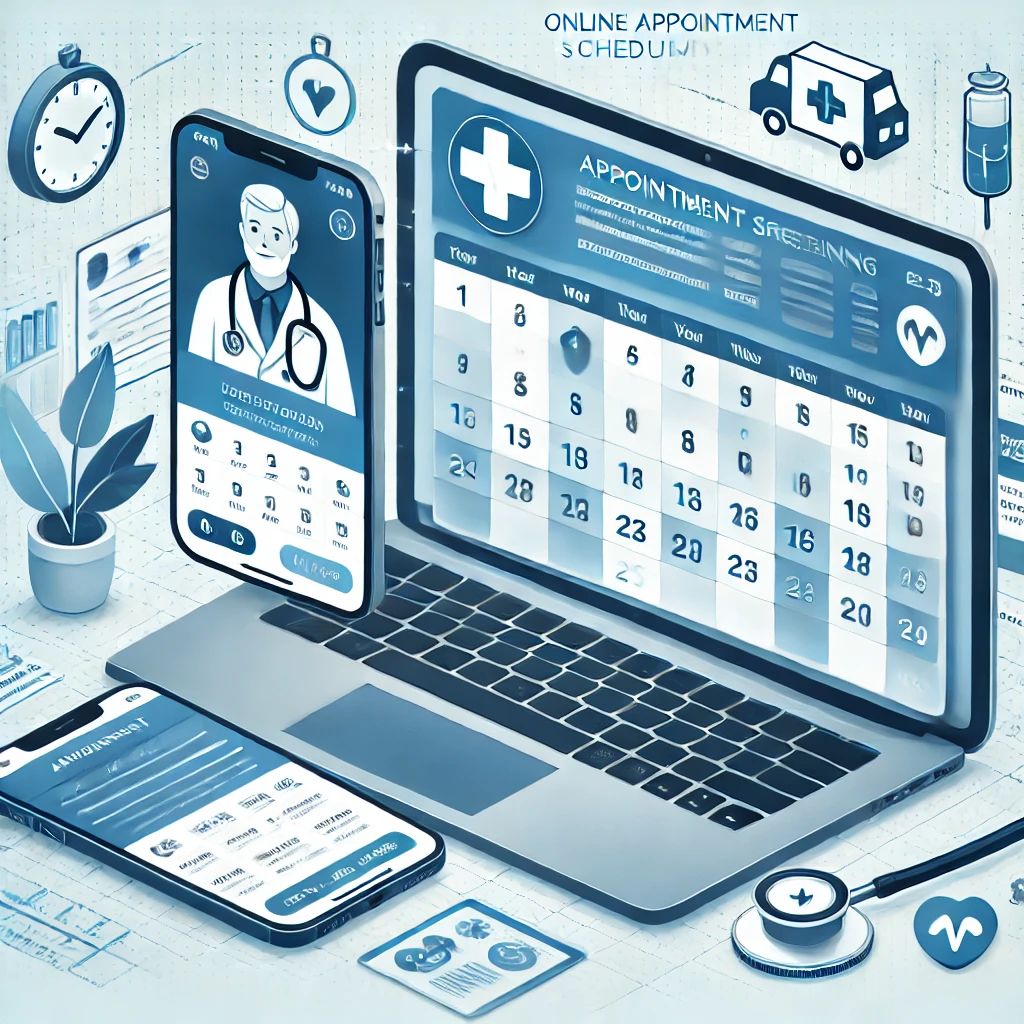This guide will walk you through everything small to mid-sized clinics need to know about online appointment scheduling for doctors in 2025—including its benefits, must-have features, HIPAA compliance requirements, reminder systems, and the best software platforms available today—so you can make an informed, future-proof choice for your practice.
Table of Contents
Online Appointment Scheduling for Doctors: Why It’s Now Essential
Online appointment scheduling has shifted from a convenient extra to an absolute must-have for medical practices. Today’s patients expect the same seamless digital experience from healthcare that they get from retail, travel, or banking.
Recent surveys highlight this shift: 67% of patients prefer to book medical appointments online, while only 22% still choose to call by phone. Even more striking, over 40% of all appointments are now booked after hours—when clinics are closed and phones go unanswered. Without an online system, those bookings are simply lost.
It’s no surprise that nearly 80% of patients say they would switch to a doctor who offers online scheduling. In short, if your clinic isn’t offering online booking, you may already be losing patients to practices that do.

Learn How to Get High Medical SEO Rankings for Your Website
Benefits of Online Scheduling for Doctors and Clinics
Implementing an online appointment scheduling system delivers measurable advantages for both small and mid-sized medical practices and their patients. Beyond convenience, it improves efficiency, reduces costs, and directly supports patient satisfaction and retention.
24/7 Convenience for Patients
Online scheduling gives patients the ability to book appointments anytime—day or night—without waiting on hold. This matches modern lifestyles, where over 40% of online bookings occur outside normal office hours, capturing demand you would otherwise miss. Patients value this flexibility, and surveys show they are far more likely to choose providers who offer online booking (up to 94% in one study).
In a competitive market, 24/7 access is no longer a perk—it’s an expectation.
Do you run a larger facility? Learn How to Increase Patient Volume in a Hospital
Reduced Administrative Burden
Self-service booking shifts much of the data entry and coordination off your staff’s plate. Front-desk teams spend less time answering phones and juggling calendars, and more time focusing on in-person patient care. Clinics using online scheduling have reported up to a 50% reduction in staff time spent on scheduling tasks.
Automated confirmations and reminders further reduce human error, double-bookings, and scheduling bottlenecks, freeing up administrative bandwidth and improving accuracy.
Fewer No-Shows and Better Attendance
No-shows cost the U.S. healthcare system an estimated $150 billion every year. Online scheduling systems address this in two critical ways:
- Patients can cancel or reschedule online, which lets you refill slots in advance.
- Automated text and hipaa compliant mail reminders dramatically improve attendance.
Studies show that combining self-scheduling with reminders can cut no-show rates by 17–38%. One study found no-shows were 38% lower among patients who received SMS reminders.
Fewer missed appointments means more consistent care delivery—and more reliable revenue.
Higher Patient Satisfaction and Loyalty
In healthcare, convenience drives satisfaction. Patients frustrated by hold times or call-backs are more likely to leave poor reviews or switch providers. Offering a smooth, transparent booking experience:
- Improves your practice’s reputation and perceived modernity
- Gives patients a sense of control by letting them choose their own time slots
- Reduces wait times and administrative friction, which directly increases satisfaction scores
Patients increasingly say they would leave a practice that doesn’t offer online scheduling in favor of one that does, making this feature a core part of patient retention. So remind this when setting up lead generation systems.
Improved Efficiency and Resource Utilization
Online scheduling platforms also help optimize provider time and reduce idle gaps. You can:
- Set rules to prevent overbooking or under-utilization
- Enforce buffer times between appointments
- Cap daily appointments or block certain slots for new patients or specific services
This leads to more predictable schedules, fewer last-minute scrambles, and higher productivity. Many clinics even report a revenue lift after implementing online booking, simply because more appointments get booked—and kept.
Bottom line: Online scheduling systems don’t just improve patient convenience. They also streamline your operations, reduce no-shows, enhance resource utilization, and build long-term patient loyalty.nts like HIPAA compliance and features to look for in a scheduling system.

Read How to Increase Patient Volume in a Clinic in 2025
HIPAA Compliance and Security Considerations
For any U.S. healthcare practice, privacy and data security are non-negotiable when implementing an online appointment scheduling system. These platforms handle patients’ personal and health-related information, which are classified as Protected Health Information (PHI) under the HIPAA Privacy Rule. This is crucial for healthcare reputation management.
Even something as simple as a patient’s name linked to an appointment qualifies as PHI, which means your scheduling software must be HIPAA-compliant. Failing to meet HIPAA standards can lead to severe penalties, data breaches, and a loss of patient trust.
Below are the critical HIPAA requirements to evaluate in any appointment scheduling platform:
Business Associate Agreement (BAA)
Any third-party vendor that handles PHI on your behalf must sign a Business Associate Agreement (BAA). This is not optional—it’s a legal requirement. Specially for social media remarketing campaigns.
- Reputable medical scheduling software providers will always offer a BAA as part of their service.
- If a vendor refuses to sign a BAA, that’s a clear sign their platform is not suitable for healthcare data.
Data Encryption
Ensure the platform uses strong encryption both in transit and at rest to protect sensitive data such as patient contact details and appointment information.
- HIPAA guidelines recommend TLS 1.2+ for data in transit and AES-256 for stored data.
- This ensures all appointment details are securely transmitted and stored in case of breaches or interception attempts.
Quick Read: How to Market a Mental Health Clinic in 2026
Access Controls and Authentication
Robust access control is essential to protect PHI from unauthorized users. Look for:
- Unique logins for each staff member
- Role-based access permissions (minimum necessary access principle)
- Audit logs to track who accessed what data and when
- Two-factor authentication or similar security for all admin accounts
Regular Updates and Security Audits
Cybersecurity threats evolve constantly. Your scheduling vendor should:
- Provide frequent software updates and patches
- Perform regular risk assessments and security audits
- Offer transparent documentation showing their compliance practices
This demonstrates an ongoing commitment to data protection and helps prevent vulnerabilities.
You’ll love this article: HIPAA Compliant Marketing Solutions for Doctors
Data Backup and Retention Policies
Ask how the vendor handles data backup, disaster recovery, and retention periods:
- Encrypted backups should be stored off-site or in secure cloud environments
- There should be a clear disaster recovery plan to restore operations quickly if the system fails
- These measures are required under HIPAA’s contingency planning rules
Patient Privacy Features
Many modern platforms also include patient-facing privacy options to help you meet HIPAA’s patient rights provisions. Examples:
- Masking certain information in email or SMS reminders
- Allowing patients to customize their notification preferences
- Giving patients access to their appointment history via secure portals
Providing these features enhances transparency and builds trust while reducing your compliance burden.ic or HIPAA-enabled version is in place. Stethon Digital Marketing ensures you protect patient confidentiality and avoid “nightmare” scenarios of breaches or fines. Remember, HIPAA compliance isn’t just IT’s job – it’s an essential part of running a reputable medical practice.

Explore: Programmatic Display Ads for Medical Businesses
HIPAA Compliant Appointment Scheduling Is Getting Harder Than Ever
Never use generic scheduling apps (like those designed for salons or general businesses) unless they offer a specific HIPAA-compliant version and a signed BAA. Many popular calendar tools are not compliant by default and can expose your practice to serious risk.
Choosing a healthcare-specific, HIPAA-enabled scheduling platform protects your patients’ privacy, shields your practice from liability, and builds long-term trust with your community. In healthcare, HIPAA compliance isn’t just an IT concern — it’s a foundational part of running a professional, ethical medical practice.
Implementing the right online appointment scheduling system for doctors in 2025 will position your clinic for smoother operations, stronger patient relationships, and sustainable growth in the years ahead.